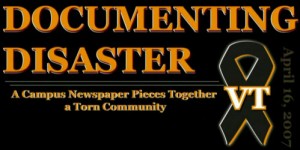Student media advisers give high marks for priorities, performance of publication boards
By LEI XIE and JAMES SIMON
Fairfield University
Abstract – College journalists often have their work evaluated by campus Media Advisory Boards. Student editors complain some boards have used their oversight role to censor or indirectly exert control over the print or broadcast product. This exploratory study seeks to determine how often Media Advisory Boards exist and what factors correlate with a school having such a board. This study, based on a national survey of members of the College Media Advisers organization (N = 157), is designed to provide baseline data on such questions as how boards differ in title and size, what characteristics of a school help explain differences in the composition of a board, and what are the most common functions of a board. The results can be useful to schools considering creation of such a board, to schools examining the operations of their current board, and to various constituencies – student editors, journalism faculty, administrators – involved with the student press. Continue reading “Research Spotlight: Media advisory board — friend or foe?”
